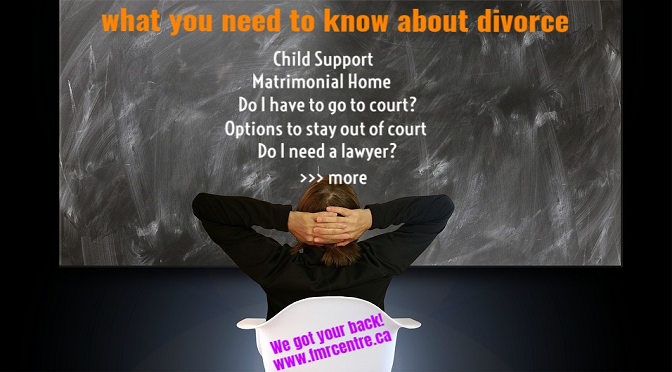Icebergs & Family Law
What does human nature have to do with icebergs, and for that matter, family law? Although most of us deal with human nature on a daily basis, we rarely seize the moment to think deeply on the subject.
Jean-Baptiste Molière was a 17th century French playwright and actor. He is considered to be one of the greatest masters of comedy in Western literature. In the Misanthrope, one of his most famous short plays, we read these timeless words: “Let us torment ourselves a little less about the vices of our age and be a little more lenient to human nature.”
The law (I am told) is about “reason,” not “emotion.” After all, if we really wanted to learn about emotion, we would have spent our days studying psychology and not the law. Instead, law school taught us how to “think like a lawyer.” Looking back at my years in law school and over my 24+ years in the business of law, I have come to wonder if I ever did get it. Truth is… I feel very much like an outcast amongst most of my colleagues, most times feeling quite vulnerable and distressed over the practice of law.
We can all vividly recall images of that deadly iceberg encountered by the Titanic. Icebergs, as we know, have the bulk of their structure under the water – 90%, I am told. That invisible part of the iceberg, under water, is dark, unknown, secret and hidden. This seems to be an excellent metaphor for the relationship of the law, to reason and emotion. As lawyers and judges, we focus on what is visible – above the water line: the conscious, logical, rational and factual. Yet, we give little thought to under the surface (remember 90%) where lies our emotions; hidden, powerful, mysterious structures we ignore. I submit that we chose to ignore this aspect of human nature at our peril.
While the Canadian Bar Association and the Law Society of Upper Canada constantly initiate public relations campaigns to improve the public perception of lawyers, the legal system unintentionally conspires to perpetrate the behaviours that stamp a different perception indelibly in the minds of ordinary people. In ignoring human nature, the system (that’s judges and lawyers – you and I) continues to attempt to persuade the public that we are good people, while denying them the experience of connection with real human beings. We are out of touch with human nature and as a result, we can hardly appreciate ever being lenient towards it.
Our clients may believe they only need our intellect and our legal knowledge. However, I truly believe that what they actually want, in fact deserve, to have the feeling that we are really present to them; that we are “connecting” with them, interested, not judging and that they are more than just another case.
Some time ago I argued a very difficult and emotionally trying motion. (I think you know what I mean.) It never ceases to amaze me how complicated life can be. I’ve come to fear (and I mean “fear”) bringing cases before the court, as I feel that there is increasing uncertainty and unpredictability in the outcome.
It’s quite understandable (and commendable) why more and more people are turning to Alternate Dispute Resolution, for at least one has some control over his/her destiny. When you go to court with a dispute… you just never know the outcome. In the end, there are rarely any winners.
Anyhow, back to that case. At the conclusion, I “lost” and I confess that I felt quite dejected, even though I knew I gave I did my best and gave it my best shot. To make matters worse, given the facts, I did not think it was an appropriate case to award costs. The judge ordered substantial costs which I knew would come directly out of my client’s children’s mouths. That evening I shared the event with my spouse, who immediately said: “Marty, what the judge did was punitive and heartless.”
I thought about what my wife said and about that court appearance and realized that for the presiding judge, the case had everything to do with “reason.” Nothing to do with “emotion.” I can see now that the judge was only looking above the water line and failed to give little thought that 90% below the line.
Law seems to offer an either-or choice: You can be objective (and be a good lawyer) or you can be emotional. Though I know that many of you will disagree, I still believe that we can have both. When we acknowledge the value of human nature, coupled with all its emotion, and when we struggle to learn to recognize and appreciate our own underlying feelings and those of others, this, in my view is the making of a good judge and a good lawyer.
As we integrate our thoughts and feelings, there will be greater personal and professional satisfaction, for we are no longer making the “law” a matter of cold, barren reason, but we’ve connected with real people who have real problems in our mutual humanity.
Can we learn from these words of Jean-Baptiste Molière? Are we so caught in our roles as “lawyers,” “judges” and “crown attorneys” that we’ve lost a sense of mercy – of understanding and compassion in our work? Is there a place where we can adjust and look below the water line and be a little more tolerant in our dealings with others? These are questions, I believe that we need to face and ask ourselves, for if we don’t, the system in which we work will be thrown to the vices of our age.
Marty Klein is senior counsel of Klein Law in Mississauga, practicing in the area of Family Law and through We Mediate, a new Alternate Dispute Resolution service.







